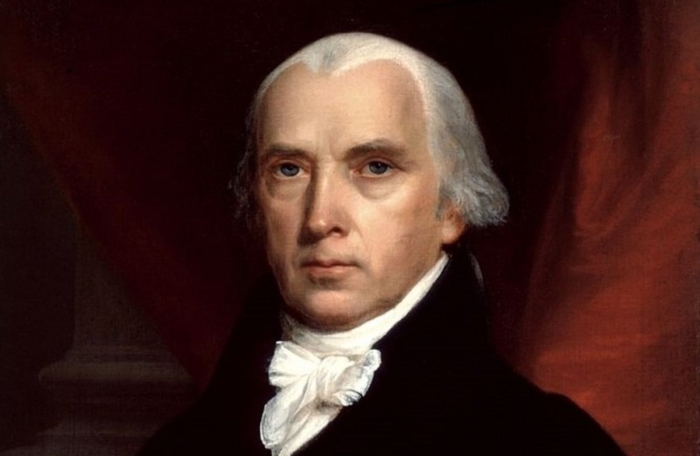The Center for Disease Control’s plainly unconstitutional eviction moratorium, begun in the Trump administration and continued by President Biden, is much more than a presidential abandonment of the rule of law. It’s a rejection — and reversal — of the very foundation on which James Madison based all government power — private property rights.
And the problem it’s trying to solve would be much less of a problem were it not for other government restrictions on private property.
Government in the United States exists to protect individual rights, including the right to property. In fact, Madison believed that government itself was justified primarily for the purpose of protecting property rights.
As Thomas Jefferson put it in the Declaration of Independence, the purpose of government is to “secure these rights” — the unalienable ones endowed by man’s creator.
Madison, explaining his thinking in 1792, wrote that protecting property rights was the very foundation of government.
“Government is instituted to protect property of every sort; as well that which lies in the various rights of individuals, as that which the term particularly expresses. This being the end of government, that alone is a just government, which impartially secures to every man, whatever is his own.”
Madison believed that people had property rights not just in physical objects they owned, but in their ideas, their beliefs, and their labor. The Constitution secures rights to free speech and religious worship because each of us has a property right in our own conscience and our own faith. Our ideas and our thoughts are a form of property on which government can have no claim, he believed.
Protecting these individual rights from violation by other individuals or groups was the very purpose of government, Madison wrote. And violating property rights was inherently unjust.
“That is not a just government, nor is property secure under it, where the property which a man has in his personal safety and personal liberty, is violated by arbitrary seizures of one class of citizens for the service of the rest.”
The eviction moratorium is just such an arbitrary seizure. It appropriates private property for public purpose, and does so both illegally and unnecessarily.
The federal and state governments have had other, less intrusive means of achieving the eviction moratorium’s goals. The obviously correct method is to pay landlords, not to appropriate their property.
To this end, the federal government has made $46.55 billion in rental assistance available. Being the federal government, it has ineptly managed this aid, most of which remains undistributed. But the government can’t argue that its own bureaucratic incompetence is a justification for illegally appropriating private property.
Today, many arguments for extending the moratorium rest primarily on leftist political theory, not public health. The idea is not that evictions will spread COVID, but that they are an evil in and of themselves because they allow people with power and money to exploit people who have less power and money.
This, however, is Madison’s very definition of unjust government, that being one in which property “is violated by arbitrary seizures of one class of citizens for the service of the rest.”
Whether it exists for public health or “social justice” reasons, the eviction moratorium is an unconstitutional Madisonian nightmare.
And, as with so many government “solutions,” it is a property rights violation issued to correct a problem caused by previous property rights violations.
America’s primary housing problem is not that the country has too many “greedy” landlords, but that the country has too few of them.
The vast majority of landlords in the United States are not corporations, but individuals, Census Bureau data show. As the Pew Research Center put it last week:
“Landlords aren’t a homogenous group of faceless corporations. In fact, fewer than one-fifth of rental properties are owned by for-profit businesses of any kind. Most rental properties – about seven-in-ten – are owned by individuals, who typically own just one or two properties, according to 2018 census data. And landlords have complained about being unable to meet their obligations, such as mortgage payments, property taxes and repair bills, because of a falloff in rent payments.”
It’s not big companies that provide so much American rental housing, but individuals who buy or build properties for investment purposes, often to provide a retirement income. And this entrepreneurship is suppressed by government.
For decades, local governments have systematically constrained rental housing through a variety of private property restrictions. Knowing that people left free to use their property as they see fit would voluntarily build duplexes, apartments, and small rental homes, governments nationwide have banned or severely curtailed such construction.
From rent control laws to bans on boarding houses and accessory dwelling units, localities have intentionally discouraged people from becoming landlords. Without such property restrictions, rental housing would be much more plentiful, rents would be much lower, and landlords would much have less power over tenants.
Competition for tenants drives prices down and services up. Limiting the supply of landlords reduces that competition, which pushes rents up and services down.
As is often the case, a seemingly intractable problem some say can be solved only by unprecedented government intervention was in fact caused in the first place by unwise government intervention and would be largely remedied simply by removing government restrictions that created the problem in the first place.










